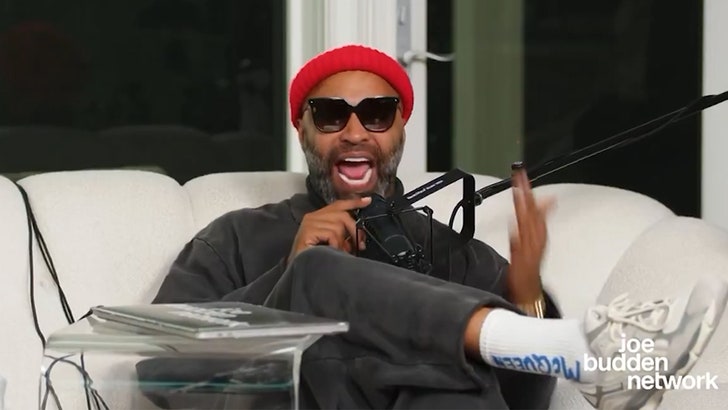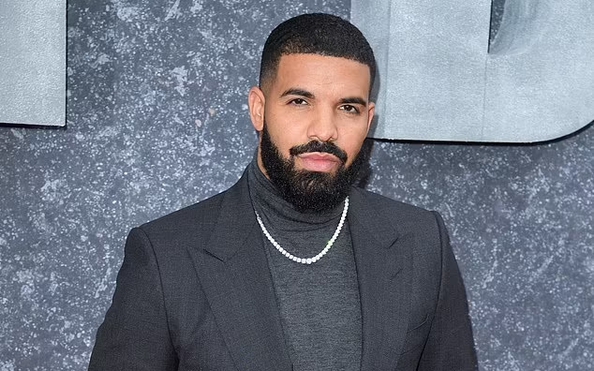Joe Budden, known for his unfiltered takes and deep dives into hip-hop culture, recently sparked a heated debate on The Joe Budden Podcast. The discussion centered around a long-standing rivalry between Roc-A-Fella and Cash Money—and their protégés who now dominate the music industry. Budden argued that Jay-Z, Kanye West, and Rihanna hold far more “leverage” in the entertainment business than their Cash Money counterparts: Drake, Lil Wayne, and Nicki Minaj. His reasoning? Diversification, independence, and power moves that extend far beyond music.
Here's ads banner inside a post
This isn’t just about talent or hits. According to Budden and his cohosts, the difference lies in how each camp built their empires and managed to wield influence over their careers and the industry at large.
The Roc vs. Cash Money: Two Titans of the Industry
Roc-A-Fella and Cash Money are two of the most iconic names in hip-hop. Both camps have shaped the culture, dominated charts, and produced some of the biggest stars the world has ever seen. However, Budden pointed out key distinctions in how each collective operates and sustains its power.
Jay-Z, Kanye West, and Rihanna, representing the Roc-A-Fella legacy, have leveraged their influence to break into industries far beyond music. Jay-Z’s transition from artist to mogul, his marriage to Beyoncé, and his ability to own and control his masters are prime examples. Meanwhile, Kanye West has built billion-dollar fashion brands like Yeezy, and Rihanna has become a business powerhouse through her Fenty empire.
Here's ads banner inside a post
On the other hand, Cash Money’s biggest stars—Drake, Lil Wayne, and Nicki Minaj—are undeniably massive forces in music. They’ve sold millions of records, broken countless streaming records, and redefined the rap and pop landscape. However, Budden argued that they haven’t reached the same level of diversification or control over their careers as their Roc counterparts.
Jay-Z’s Blueprint for Independence
A significant part of the discussion revolved around Jay-Z’s ability to maneuver within the music industry. Budden and his cohosts noted that Jay-Z began his career with a high degree of independence, thanks to Roc-A-Fella Records. Even though he faced exploitation early on, Budden emphasized that Hov worked tirelessly to gain ownership over his material and eventually built an empire that transcended music.
Jay-Z’s business ventures—including Roc Nation, Tidal, and his investments in sports, tech, and spirits—demonstrate his ability to pivot and scale. His marriage to Beyoncé also elevated his cultural and financial capital, solidifying the Carters as a power couple.
Here's ads banner inside a post
In contrast, artists like Drake, while immensely successful, remain tied to major labels and streaming platforms in ways that limit their autonomy. Budden argued that Drake’s ongoing legal battles with Universal Music Group (UMG) and Spotify highlight the challenges of breaking free from traditional industry constraints.
The Power of Diversification
The conversation also touched on Kanye West and Rihanna, who have become emblematic of what happens when artists diversify their income streams. Kanye’s Yeezy brand turned him into a billionaire, proving that an artist can reshape industries entirely. Rihanna followed a similar path, stepping back from music to focus on her Fenty Beauty and Savage X Fenty brands, which have made her one of the wealthiest entertainers in the world.
Meanwhile, Budden and his cohosts suggested that the Cash Money trio has focused more heavily on their music careers, which, while lucrative, don’t offer the same long-term leverage. Lil Wayne, for instance, sold a significant portion of his masters for a reported $100 million, a move that sparked criticism and questions about the value of ownership in today’s industry.
Leverage in Negotiations
One of the most striking points Budden made was about how leverage impacts an artist’s ability to negotiate with labels and other industry players. “Y’all not the only people that feed me,” cohost Ish said, describing the negotiating power that artists like Jay-Z, Kanye, and Rihanna have. Their ventures outside of music provide them with financial security and independence, making them less reliant on record deals or streaming revenue.
In contrast, artists who depend primarily on music may have less room to push back against industry demands. For example, Drake’s ongoing battle with UMG and Spotify underscores the challenges of navigating contracts and streaming royalties, even for one of the biggest stars in the world.
Finding the Exit Strategy
Budden wrapped up the discussion by emphasizing the importance of finding a path out of the industry’s exploitative systems. He acknowledged that there’s no single blueprint for success, as each artist’s journey is unique. However, he stressed that artists must prioritize ownership, diversification, and long-term vision if they want to build true leverage.
“It’s all a debate around how to manage your money and power, especially if you want to stay true to your own goals,” Budden said.
A Never-Ending Debate
The comparison between Jay-Z and Drake—or Roc-A-Fella and Cash Money—has long been a topic of discussion in hip-hop. But Budden’s take adds a new layer to the debate, highlighting the importance of independence and diversification in an era where artists are more than just musicians—they’re brands, entrepreneurs, and cultural icons.
While the conversation may never reach a definitive conclusion, one thing is clear: the paths taken by Jay-Z, Kanye, Rihanna, and their Cash Money counterparts represent two distinct approaches to navigating fame and fortune. Both have produced unparalleled success, but the difference lies in the type of legacy each camp is building—and how they choose to wield their power in the ever-evolving music industry.

